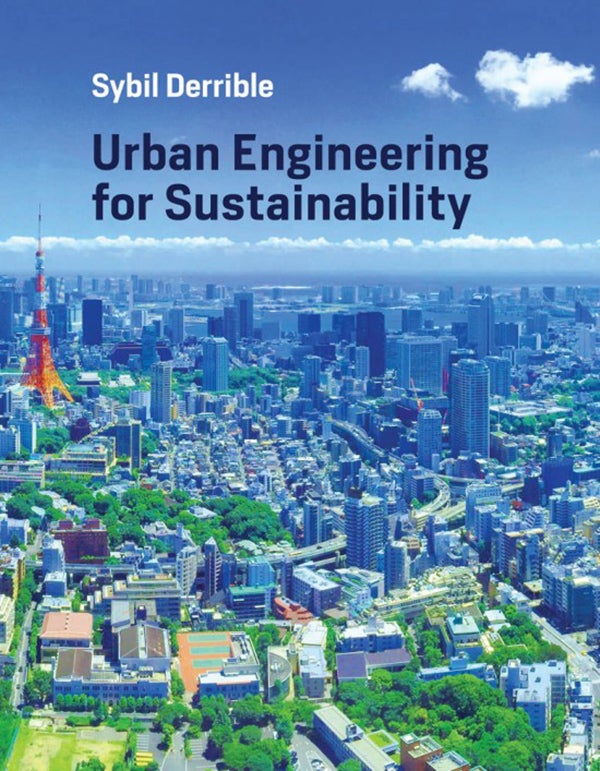Professor Derrible releases ‘Urban Engineering for Sustainability’ textbook

Professor Sybil Derrible in CME has used his vast knowledge of engineering to provide a unique perspective for a new textbook called “Urban Engineering for Sustainability.”
The book is geared toward senior undergraduate students, graduate students, and practitioners in various engineering fields and urban planning. However, Derrible also said it is perfect to study for the Fundamentals of Engineering (FE) and Principles and Practice of Engineering (PE) exams.
In the book, Derrible addresses issues that are not in other textbooks as it introduces multiple infrastructure systems.
“Usually, a textbook is solely on transport or water. ‘Urban Engineering for Sustainability’ introduces five main infrastructure systems that society relies on every day,” Derrible said. “In addition to these five chapters, specific chapters are also dedicated to introducing elements of sustainability, population forecasting, urban planning, urban metabolism, and the new science of cities and machine learning.”
He explained how a transport engineer might only see a road as a system to move vehicles and a water resources engineer might only see a road as a gutter that needs to handle stormwater. The book helps to break down the silos in engineering.
“Cities are not the sum of several independent infrastructure systems, they are networks of co-existing and highly interdependent infrastructure systems,” he said. “Urban Engineering for Sustainability is the first engineering textbook to deal with multiple infrastructure systems, both defining them individually, and describing how they are all interdependent.”
Five main infrastructure systems are studied: electricity, water, transport, buildings, and solid waste. Gas and telecommunications are discussed as well but they do not have a separate chapter.
“In the future, we will need to design urban infrastructure systems together, so that interdependencies that control them make them smarter, less energy intensive, and more reliable, as opposed to limiting factors as is currently done,” he added. “It’s important because it educates engineers to look at infrastructure as integrated as opposed to separated systems.”
The book is partly based on his research and papers he has published.
“I have been educating myself about all these infrastructure systems for my research (to better understand how urban infrastructure systems are interdependent) and for teaching, and essentially put what I had learned into notes that eventually became the book. The first beneficiary is myself but I noticed a big gap in the literature and how much this type of book was needed” he said.
Derrible spent approximately six years working on the book. While he is the sole author, all the chapter were reviewed by individual experts, who are acknowledged in the book.
The prolific researcher is working on several publications at the moment, including a trade book on the general theme of urban infrastructure. In addition, he is work on an edited volume in collaboration with a colleague at another university.
“We are asking world experts to write a ‘reflection’ of what they think urban infrastructure will be like in 2100. On purpose, we are not asking for formal book chapters, but fun and creative pieces, from short stories and poems to small perspectives, drawings, and paintings.”
The edited volume should be published in summer 2020.
Learn more about Derrible’s research at https://csun.uic.edu.